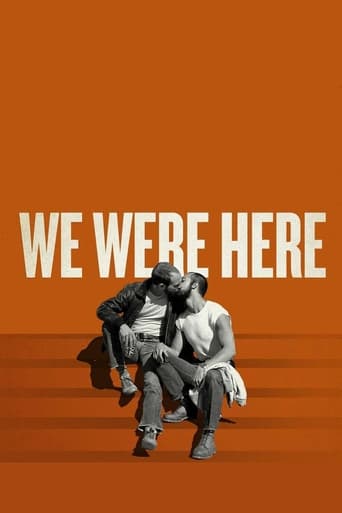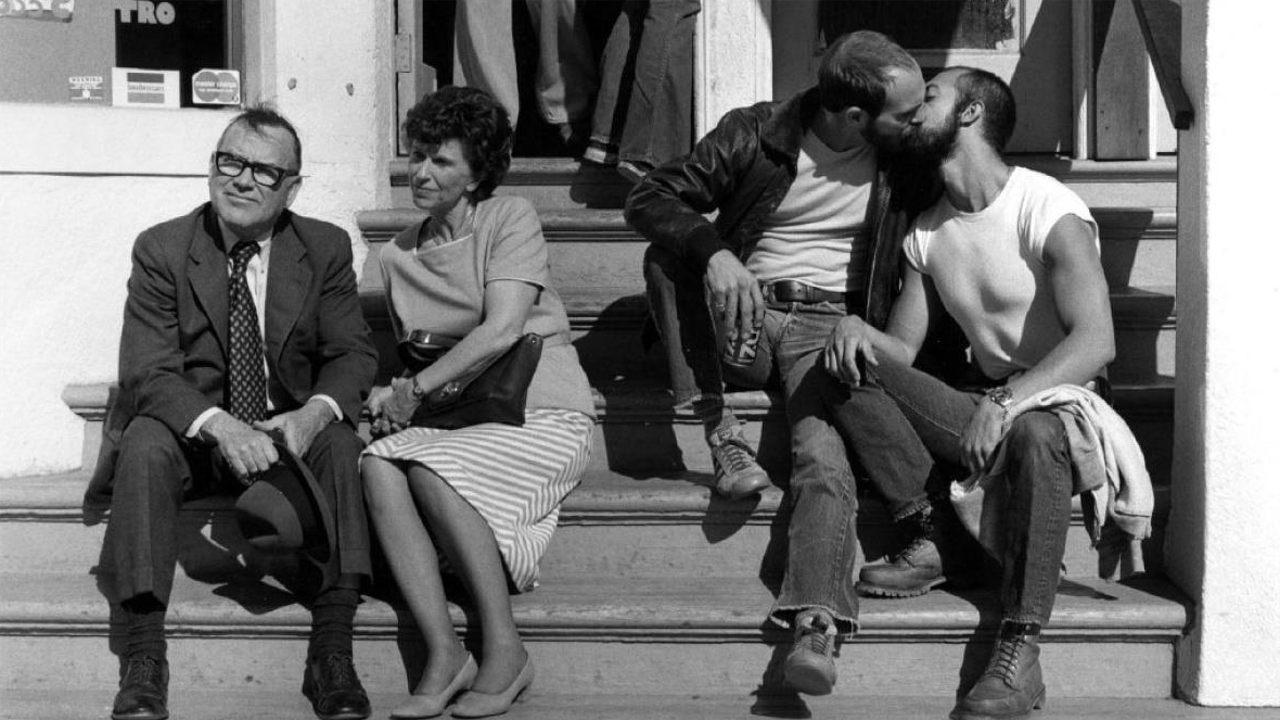TheDocHierarchy
The AIDS Epidemic first reached San Francisco and its vibrant gay community in the late 1970s. A mystery to doctors, both in form and how it was being transmitted, the disease that would come to be termed the 'gay plague' spread rapidly. By the start of the 1980s, men were rapidly presenting with symptoms of both Kaposi's sarcoma and pneumocystis pneumonia. With treatments having little effect, nothing could be done but to help them die.Weissman and Weber's 'We Were Here' is not an exploration of the impact of the AIDS epidemic per se, but of a chapter in American social history. Do not expect any reflection on the ongoing African epidemic for example, the focus is the effect on individuals and the community in San Francisco that went beyond that simply of illness and death. How does one retain moral strength when friends and loved ones are dying of an illness that is not only untreatable, but for a long time, simply unknown? In as much, the directors should be commended for finding a cast of people both so involved in the crisis, yet affected in such different ways by the devastation wrought. The inclusion of a lesbian nurse who worked in the city's first specific-AIDS ward and later helped organize a number of clinical trials is a notable touch given the hostility between the gay and lesbian communities at the time. The manner in which the epidemic brought the two communities together, with lesbians holding blood banks to exploit their immunity, is one of the film's most tender and poignant moments.Ultimately, what all the voices share are lives so deeply intertwined with the period that it is impossible not to get emotional listening to their recounting. Given the added context of the isolation and ostracision of the gay community during the period, one's admiration for the strength and perseverance shown by the men and women (one of whom is indeed HIV-positive) cannot be overstated.Do not fear a kitsch, overly-sentimental eulogy to those who died. 'We Were Here' is as much about life-affirmation as it is death. The many who died would be proud to see how their loved ones have managed to move on and enjoy fulfilling lives, without ever forgetting them.Concluding Thought: How to even begin to comprehend life as a homosexual in San Francisco at the time? The interviewees do their best to describe it, but I think even they know there are limits to what they can put across in words.
manschelde-1
This is a really fine piece of work.The BBC screened it on BBC4 in Febrary 2012 and made it available via i-Player also.Anyone who lived in the Bay Area during the eighties will be moved, informed and educated by this documentary. As a young gay geek in San Francisco in those years, I was overwhelmed by the deaths and suffering I saw and often could not make sense of it. This documentary really helps.The tales of the attacks on civil liberties by the bigots, and the personal tales were emotive and powerful. Now I salute those survivors and hope their stories will stimulate others in future onslaughts.
JvH48
I saw this film as part of the Ghent filmfestival 2011. At the time of this story (the 80's) the AIDS epidemic was something we read about in newspapers and magazines, at a safe distance so to speak. What I remember most was the long time it took before the underlying causes became clear. There were several theories at first, because no one could find a common denominator for two target groups that suffered most: hard drugs addicts and homosexuals. Nowadays, it is easy for us to see the connection as being obvious.What we easily overlooked at that time was the impact it had on people that were hit, in combination with the hopelessness of their situation in the absence of a cure. Two quotes I can't wipe from my mind: [1] "Can't go on like this" at a moment that many friends and acquaintances died, without any effective remedy in sight. And quote [2] "Don't want to come out of this war like my father came out of the war he fought in", as if wondering how the world would be after this bad interval was over, and whether residual trauma's were to be expected. Not only quotes like these, but also the honest stories told by survivors that were interviewed, certainly left an impression on us.All in all, I could do nothing more than giving the maximum score (5 out of 5) for the audience award when leaving the theater. We saw a very comprehensive overview of how people (re)acted on the disease, presented by all sorts of people involved. It also makes us think about possible new diseases that may befall on us. For example bird flu (H5N1) springs to mind, due to a recent publication about related work in Rotterdam (NL). While imagining that such a virus breaks loose, either this one or a new one for that matter, it is difficult to suppress post-apocalyptic visions about what may happen.
benjweil
I went to see "We Were Here" today at the Cinéma-Village theater in New York. I was afraid it would disappear before I got the chance to see it. This movie was recommended by a friend who is a producer at KQED in San Francisco as being the ultimate resource on San Francisco during the early years of the AIDS epidemic. Along with Randy Shilts's seminal book, "And the Band Played on," he was certainly right.One great element of "We Were Here" is that it gives several quite different perspectives on what the HIV epidemic in San Francisco was like at that time: Ed, the misfit who found his place in the gay community by volunteering with people with AIDS early in the epidemic; Daniel, the Jewish artist who felt he had found his true family among San Francisco's gay men and then lost them all within a few painful years; Paul, the high-profile political activist; Guy, the big-hearted, philosophical black flower vendor; and Eileen, the lesbian nurse who served at ground zero of the epidemic and stuck with it with grit and compassion to the end.Like Ed, I didn't fit in well in the "gay community" during my years in San Francisco. So disconnected was I that I did not know a lot of what was happening in the early and mid-1980s, although I remember Guy the florist, who always had a smile for every passerby on the street corner where he worked, and I remember James Harning, a beautiful young man who died a hard death in 1992. "We Were Here" helped me understand much of what was going on all around me in those days. It will do the same for others who weren't "there," for reasons of either age or geography, and it will be a moving, bittersweet reminder for those who did survive those difficult years in San Francisco.


 AD
AD
